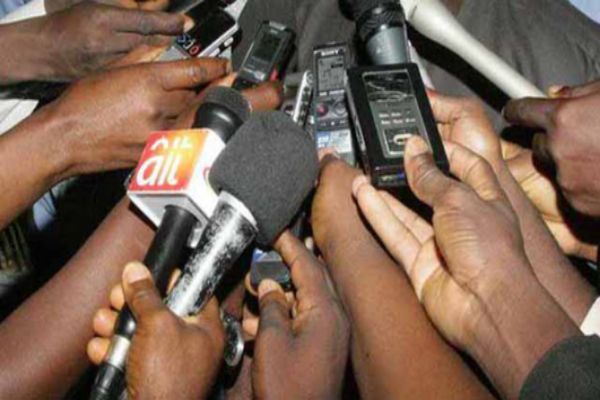The media has become a critical player in the public space, particularly in the 21st century, due to its vast reach and influence. Globalization has led to profound changes across professions worldwide, and the media’s role in governance has evolved significantly. Governments are now largely assessed by the information disseminated through various media channels, which shape public perception and engagement.
By Dr. Ibrahim Baba Shatambaya
Governance today is evaluated based on how responsive governments are to citizens’ needs. The media plays a crucial role in ensuring inclusivity by allowing diverse governance actors to fulfill their roles. At the heart of governance is the welfare of the people, and the media acts as a bridge between citizens and their governments. In democratic settings, media platforms enable citizens to engage with one another and with their leaders, shaping governance processes at various levels.
This article explores the role of the media in promoting good governance through citizens’ engagement and participation in civic activities.
Conceptual Issues
To understand the media’s role in governance, it is essential to define key concepts:
- Media: The channels used to communicate news, education, entertainment, and promotional messages. These include print, broadcast, and digital media platforms.
- Democracy: A system of government where power is vested in the people, either directly or through elected representatives. It ensures public participation in policymaking.
- Governance: The manner in which power is exercised in managing a country’s resources and affairs. It involves both formal institutions and informal processes guiding collective decision-making.
- Good Governance: Transparent, accountable, and responsive governance that upholds the rule of law, human rights, and sustainable development. It includes principles such as accountability, transparency, responsiveness, and citizen participation.
The Media and Democracy
The relationship between media and democracy is undeniable. The media is a strategic tool in promoting democratic values by providing citizens with access to crucial information, enabling them to make informed decisions. The emergence of media democracy emphasizes the need for a free and inclusive media system that empowers citizens and promotes democratic ideals. A thriving democracy relies on the media to provide accurate, unbiased, and timely information.
The Media and Good Governance
Governance extends beyond government institutions; it involves various actors working together to provide services and resources to the people. The media, often referred to as the fourth estate, synthesizes and disseminates governance-related information. It plays a vital role in:
- Ensuring transparency by exposing corruption and unethical practices.
- Advancing human rights and the rule of law by giving voice to the marginalized.
- Encouraging civic participation by informing citizens about governance issues and policy decisions.
- Enhancing accountability by scrutinizing government actions and demanding justifications for decisions.
Specific Roles of Media for Good Governance
The media fosters good governance in the following ways:
- Promoting Transparency: Media exposes corruption, reports abuses of power, and pressures public officials to operate openly. Investigative journalism plays a key role in uncovering misconduct.
- Supporting Democratic Institutions: The media strengthens institutions such as political parties, civil society organizations, and the judiciary by promoting democratic values and the rule of law.
- Facilitating Public Engagement: By creating platforms for discussion, the media enables citizens to express their opinions and influence public policy. Social media has expanded these opportunities, allowing real-time discussions on governance issues.
- Improving Accountability: Media ensures that public officials remain accountable by highlighting governance failures and demanding corrective measures.
- Amplifying Citizens’ Voices: The media enables the public to raise concerns, mobilize support for social causes, and engage with government representatives.
- Serving as a Watchdog: Investigative journalism uncovers government misdeeds, ensuring that officials remain answerable to the public.
Challenges Impeding Media Effectiveness
Despite its crucial role, the media faces several challenges in promoting good governance:
- Concentration of Media Ownership: When media outlets are controlled by a few elites or government entities, diversity of opinion is stifled, limiting public discourse.
- Misinformation and Fake News: Ethical lapses in journalism can lead to the spread of false or misleading information, undermining public trust.
- Polarization and Partisanship: Media bias erodes neutrality and objectivity, reducing its effectiveness in promoting good governance.
- Corruption: In environments where corruption is prevalent, some media houses and journalists may compromise their integrity for financial or political gain.
- Foreign Influences: International media corporations sometimes prioritize foreign interests over local concerns, distorting narratives in less-developed countries.
Recommendations
To strengthen the media’s role in governance, the following measures should be implemented:
- De-Monopolization of Media Ownership: Encouraging diverse media ownership will ensure multiple viewpoints are represented, fostering an open and democratic media landscape.
- Enforcement of Ethical Standards: Regulatory bodies should impose sanctions on media organizations that violate journalistic ethics, including spreading misinformation.
- Establishment of an Anti-Partisan and Anti-Corruption Media Committee: A committee of experienced media professionals should oversee media neutrality and address corruption within the industry.
- Promotion of Local Content: Media should focus on locally relevant issues while incorporating only foreign stories that directly impact the local populace.
Conclusion
Good governance is essential for democracy to thrive, and the media is a key player in ensuring its success. By promoting transparency, accountability, and public participation, the media strengthens governance structures and empowers citizens. However, challenges such as media monopolization, misinformation, and corruption must be addressed to enhance its effectiveness.
A vibrant, ethical, and independent media sector will foster citizen engagement and ensure that governance processes remain inclusive and responsive to public needs.
Shatambaya is a lecturer with the Department of Political Science, Usmanu Danfodiyo University, Sokoto. He delivered this paper at the maiden Congress Meeting of the Sokoto State Council of the Nigeria Union of Journalists


